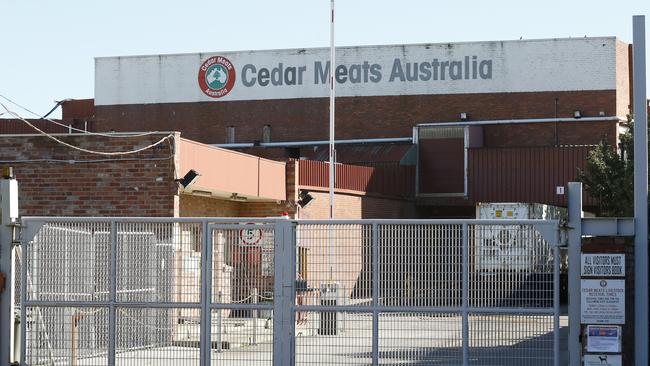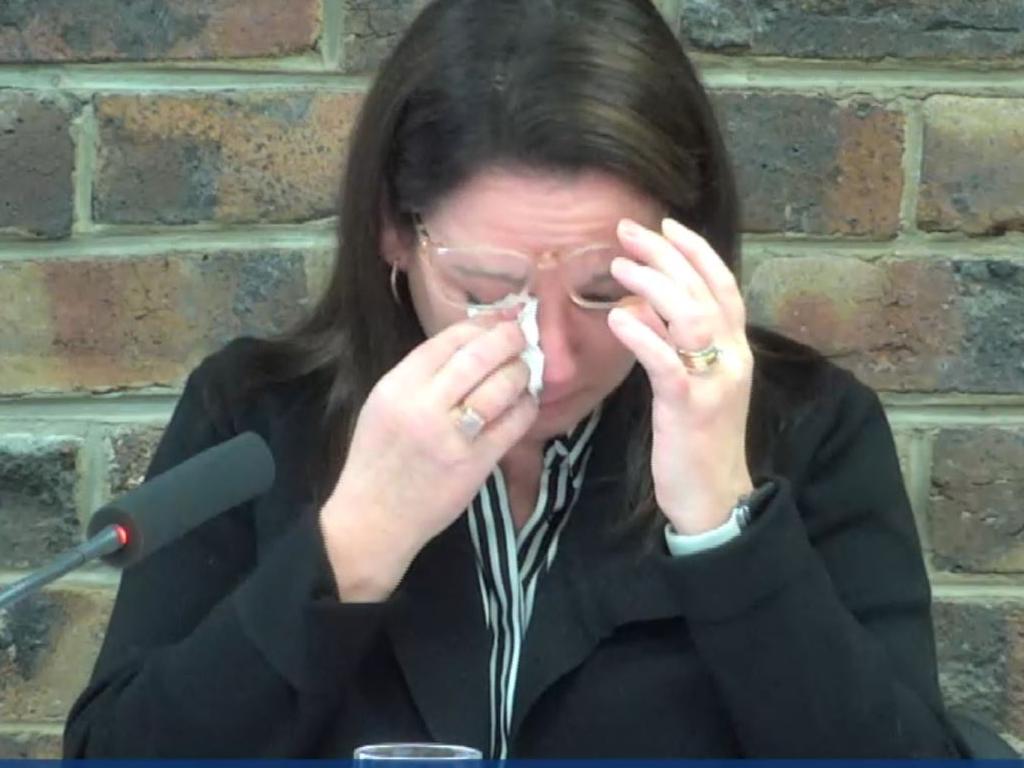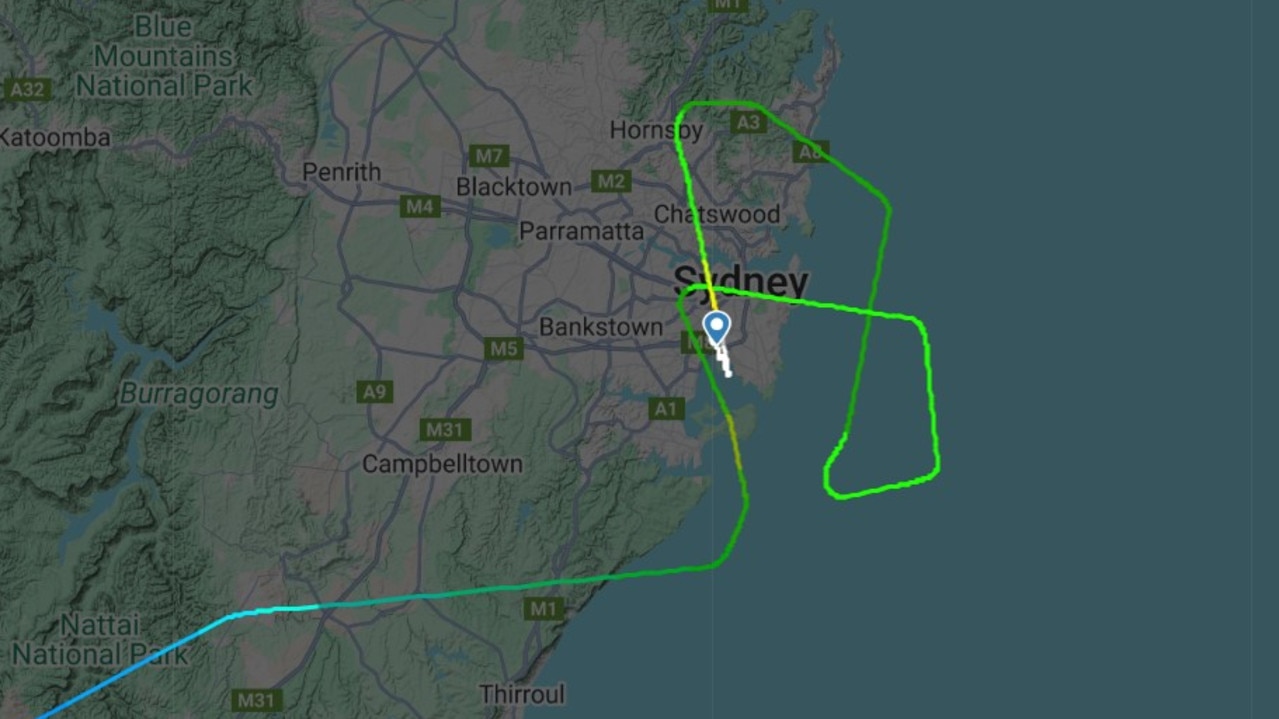Abattoir outbreak allowed to spread for three weeks
The Melbourne abattoir outbreak was given a three-week head start following a major oversight by the health department.

One of Victoria’s largest outbreaks of COVID-19 was given a three-week headstart following a major oversight by the state’s Health Department.
The Australian can reveal health authorities decided that a Melbourne abattoir was “not considered an exposure site” because the first infected employee “had not been at work while infectious”.
The Department of Health and Human Services on Tuesday night confirmed the first case of COVID-19 linked to the Melbourne abattoir Cedar Meats was diagnosed on April 2 — three weeks before a second case was identified as part of a cluster which has now reached 45 infections.
The Tuesday night statement from the DHHS represents a dramatic change in its public position on the meatworks cluster. Previously, it had claimed the first positive was detected on April 24.
DHHS on Tuesday confirmed an additional 11 cases linked to the facility in the western suburb of Brooklyn, after it was shut down on Friday with an expectation that it will not reopen until May 18, following thorough cleaning.
Cedar Meats general manager Tony Kairouz has said he “first became aware” that one of his 350 employees was infected on April 27, after a worker was rushed to the Sunshine Hospital for emergency surgery on a severed thumb and tested positive for COVID-19.
But in response to questions from The Australian submitted hours earlier, DHHS confirmed late on Tuesday that the “first case in this cluster was diagnosed on 2 April, but had not been at work while infectious so the workplace was not considered an exposure site”.
“The second case linked to the workplace was diagnosed on 24 April, followed quickly by a third case just over 24 hours later who had been a patient at Sunshine Hospital for unrelated reasons prior to diagnosis or displaying symptoms,” the department confirmed. “These cases were the first indication of a possible cluster. As soon as more than one case linked to the workplace was identified, active case finding commenced. The source of infection is still under investigation.
“A thorough risk assessment was undertaken and work was rapidly scaled back at the facility, with only minimal staff on site to ensure the safe and appropriate management of the remaining animals.
“When more cases were identified on 29 April the department advised the workplace to take additional actions across the entire workforce — including the testing of all staff. All results are expected to be returned as soon as possible and the results shared daily. The facility has been advised to close for at least 14 days, which will continue to be reviewed based on health information.
“Advice from Food Standards Australia New Zealand is that there is no evidence COVID-19 can be transmitted to people through food or packaging. Based on this information, consumers can have confidence that meat processed at the facility is safe to eat.”
The department has confirmed 42 cases in Cedar Meats staff, and another three in close contacts. Four cases were confirmed in staff working in one area of the plant last Wednesday, with eight cases confirmed by Saturday, rising to 15 on Sunday.
On Monday, an additional 19 cases were confirmed, with a further 11 confirmed on Tuesday.
The original source of the outbreak has not been established, and there is no known connection between a shipment of mutton from Cedar Meats which was exported to China last month, and the infections, which were first detected more than a fortnight later.
The 35 tonnes of mutton was trucked to the airport and flown to Wuhan, China, on April 9, as the backload on a flight which arrived in Sydney the previous day with 90 tonnes of protective masks, gowns and ventilators.
The Victorian government and Health Department chose not to name Cedar Meats at the weekend as the abattoir linked to the COVID-19 cases, despite naming a school linked to just one case.








To join the conversation, please log in. Don't have an account? Register
Join the conversation, you are commenting as Logout